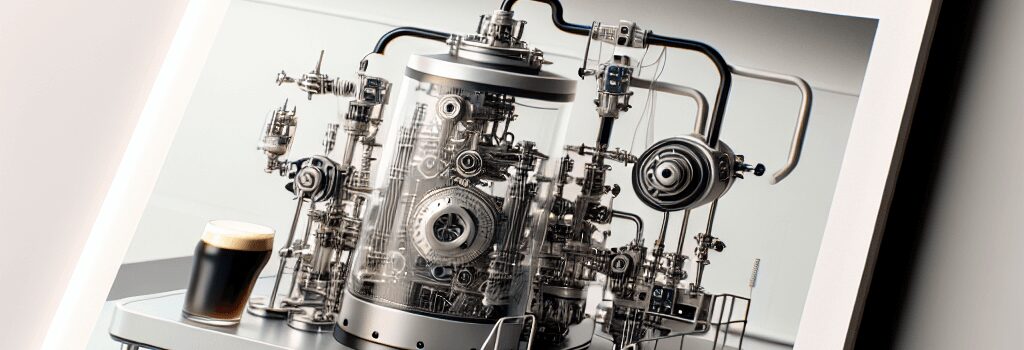AI Precision Brewing: Hacking the Fellow Aiden for Perfection

At the intersection of specialty coffee and generative AI lies an unlikely experiment: using large language models and open APIs to program a high-end robotic pour-over system. The Fellow Aiden—a countertop cube that delivers sub-1 °C temperature stability, peristaltic-pump flow control down to 0.05 mL, and programmable pulse sequences—was never designed out of the box for AI-driven recipes. But a growing community of tinkerers has reverse-engineered its API, built Python libraries, and crafted ChatGPT prompts to generate and share precision brew profiles.
Generative AI Meets Specialty Coffee Brewing
- Hardware specs: Dual-heating-element system with PID-controlled boilers, Wi-Fi 6 connectivity, BLE support, and a 300 mL brew basket.
- Software stack: Embedded Linux with a RESTful JSON API (firmware v1.2→v2.0), companion apps on iOS/Android, and over-the-air updates.
- AI integration: Custom Python client libraries, Home Assistant plug-ins, and ChatGPT (GPT-4 Turbo) prompts generate brewing vectors—temperature curves, pulse durations, and water ratios.
Opening the Aiden API: Brandon Dixon’s Breakthrough
In late 2024, Microsoft Partner AI Strategist Brandon Dixon used Proxyman (an HTTP/HTTPS proxy for macOS) to intercept Aiden’s mobile-app traffic. Within ten minutes he cataloged endpoints like POST /api/v2/brewProfile and GET /api/v2/status, complete with HMAC-secured headers and JSON schemas. He published a Python package (aidenpy) featuring asynchronous methods (asyncio), OAuth2 token renewal, and built-in rate limiting. His work sparked:
- A Home Assistant integration (Community Add-on v0.9.5) using MQTT bridging.
- An alternative AI toolset leveraging DeepSeek R1 for specification cross-validation.
Building a GPT-Driven Coffee Recipe Generator
Dixon’s approach rests on prompt engineering and iterative LLM feedback loops. Starting with a system message—“You are a master pour-over brewer; focus on single-origin clarity”—he guides GPT-4 Turbo (temperature 0.2, top_p 0.9) to output structured JSON:
{
"brewTemp": 94.5,
"pulseDurations": [30, 45, 60],
"waterRatio": "1:16",
"totalBrewTime": 240
}
Each turn corrects formatting errors or refines extraction yield targets (18–22% TDS). He then converts that JSON into Aiden API payloads. Recent GPT-4o multimodal tests can even analyze roast-profile photos to suggest temperature ramps.
Community Sharing Platforms Extend the Ecosystem
Although Fellow’s brew.link portal allows sharing drop-specific profiles, it lacks faceted search. Hobbyist Kevin Anderson launched brewshare.coffee, built on a Node.js/Express backend and Vue.js front end. It crawls Fellow’s API for profiles, normalizes grind size (0–9 scale), and indexes metadata in Elasticsearch. Mobile-responsive and SSL-secured, brewshare simplifies discovery and import, fueling both home brewers and AI tools.
The Aiden Profile Creator: Gabriel Levine’s AI Tinkering
Gabriel Levine of Leap Inc. created the “Aiden Profile Creator,” a ChatGPT prompt set weighted by SCA standards, extraction curves from James Hoffman’s publications, and R&D papers from the Specialty Coffee Association. Levine runs each generated profile on his in-kitchen Aiden (firmware v2.0.3) to validate against undocumented limits (currently ~1000 active profiles). His system randomly biases toward acidity or body, then normalizes output to Fellow’s JSON schema. To date, he’s tested nearly 3,600 profiles—each achieving a target black-coffee TDS of ~1.35%.
Technical Challenges and Security Considerations
Exposing the Aiden API introduces risks: credential leakage, man-in-the-middle attacks, and maliciously crafted profiles that could overheat boilers. Experts recommend:
- Pinning TLS certificates and enabling certificate transparency logs.
- Using short-lived OAuth tokens with rotating keys.
- Implementing server-side input validation and JSON schema enforcement.
- Rate limiting to prevent brute-force or profile-flood attacks.
Fellow Products recently announced API v2.1 will support JWT tokens and OAuth 2.1, addressing several of these points.
Future Trends: AI-Driven Home Automation in the Kitchen
Looking ahead, on-device LLMs powered by Neural Processing Units (NPUs) in Apple M-series or Qualcomm’s latest Snapdragon chips could enable offline recipe generation. Federated learning could let Aiden units learn from aggregated user data (extraction yield vs. brew time) without exposing raw profiles. Meanwhile, TensorRT-optimized models on NVIDIA Jetson could integrate smart scales for real-time TDS feedback.
Expert Opinions on AI’s Role in Specialty Coffee
Dr. Maria Lopez, Director of Science at the Specialty Coffee Association, notes: “AI can democratize brewing knowledge, but it must respect provenance and human expertise. Profiles should remain starting points—adjustment for water chemistry and bean freshness is crucial.” Renowned barista James Hoffmann warns of “over-automation,” where rigid recipes erase the nuance of manual brewing. Yet most agree: AI-assisted profiling offers a powerful learning curve accelerator.
Conclusion: Brewing Innovation
The fusion of high-precision hardware, open APIs, and generative AI is redefining how we approach specialty coffee at home. Through community projects, prompt-engineering deep dives, and emerging firmware updates, the Aiden ecosystem is poised to deliver personalized, data-driven cups at the push of a button. As Fellow Products considers opening its API and fostering richer profile sharing, the next frontier may be a truly adaptive brewer—one that learns your taste preferences over time.